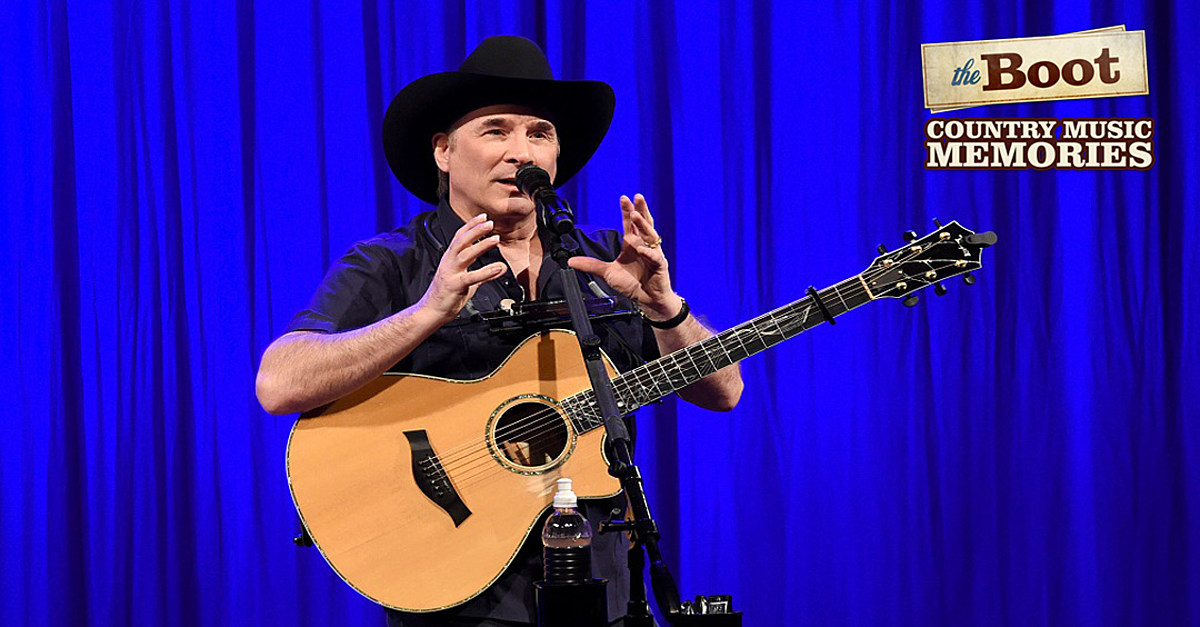On May 2, 1988, Clint Black signed a record deal with RCA Records, the label that’s been home to Elvis Presley, Kenny Rogers and the Judds, among others. At the time, ZZ Top‘s manager, Bill Ham, was also steering Black’s career — a lucky break that was just one example of how the Katy, Texas-raised musician’s love of collaboration and hard work paved the way for his success.
Growing up, Black and his older brothers would entertain neighbors at backyard barbecues dubbed “Country Sunday on Saturday” events. The younger Black showed musical aptitude early.
“When he was about 14, I guess that’s when I first noticed that he had a great voice,” Black’s father, GA Black, told The Houston Chronicle in July 1989. “He started playing the harmonica, and then he started singing along with the songs on the radio. He could copy most of ’em pretty good. He wrote his first song when he was 14, but I don’t think he’ll ever record it. It’s not country.”
Indeed, in GA Black’s eyes, son Clint’s versatility set him apart: “He liked everything so much, he just really didn’t know what he wanted to do. He does great blues. I think he could sing opera if he wanted to,” the elder Black explained at the time. However, Clint Black gravitated toward country “when George Strait and Reba McEntire turned country music around,” his father said. “I told him George Jones and Merle Haggard kept it alive just long enough for George Strait to come along and save it.”
This was no hyperbole: According to a May 1989 Houston Chronicle concert review, Black — who was sandwiched between the Bellamy Brothers and Buck Owens that night — “cuts the figure of a spirited prairie songster” and performed “a set of Texas modern cowboy music that crossed the polarities of George Strait and the Wagoneers.”
Prior to diving into music, Black worked as a construction worker, bait cutter and fishing guide. However, he also pursued music, spending six years honing his craft “as a solo country-folk singer on the Houston lounge circuit” the Chronicle noted, playing pubs, bars and nightclubs. According to a separate, early-1990 Houston Chronicle piece, Black also “used to sing for free at picnic tables in Bear Creek Park.”
But while performing in Houston clubs, Black met guitarist Hayden Nicholas; the two men hit it off creatively and started writing original tunes. However, the final piece of the puzzle came together once this music landed in the lap of management bigwig Ham.
“My throat was really feeling the strain,” Black told The Houston Chronicle. “I had been trying to get a manager all through the years. In desperation, I gave a demo of “Nobody’s Home” to a record promoter named Sammy Alfano and told him to make something happen. Two days later, I’m on my way over to Bill Ham’s office. I knew I’d found my break.”
When RCA eventually signed Black, the musician also brought along his band (Nicholas, Jeff Peterson, John Permenter and Houston session players Jake Willemain and Dick Gay) for the major-label ride. It was a wise move: Black’s RCA debut, Killin’ Time, emerged exactly a year later. The album spawned a staggering five hit singles — including four No. 1 country chart hits, including his debut single, “A Better Man” — and ended up as the No. 1 country album of 1990.
“I knew when I found Bill Ham and got with RCA that they could give me the exposure I needed,” Black told the Houston Chronicle. “I thought my music was good enough, and I could see that the traditional sound was back with singers like George Strait, Randy Travis and Ricky Van Shelton. I thought I’d fit right in.”
Test Your ’90s Country Knowledge:
